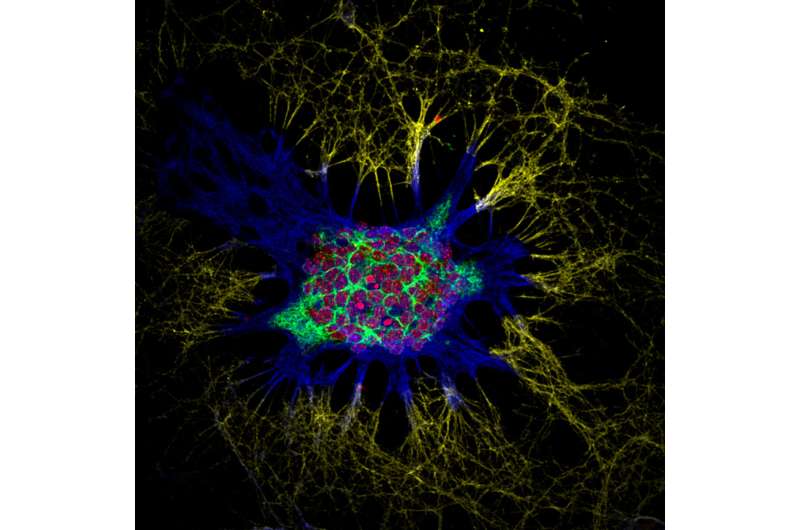
The existence of a circuit of neurons innervating our skin that promotes interaction with other individuals has just been demonstrated by a team of researchers from the Institute of Functional Genomics (CNRS/INSERM/University of Montpellier) and the Institute of Neurodegenerative Diseases (CNRS/University of Bordeaux). To understand how this circuit detects “affective” touch and influences social interaction, the researchers developed a novel genetic method that integrates a chemical switch into the neurons, enabling them to turn perception of “pleasant touch” on and off in mice.
They observed that activation of the neurons drove the animals to seek tactile contact with each other, thereby forging social bonds. In contrast, disruption of the neurons’ normal function from birth diminished the urge for such contact, reducing social interaction among the mice. Thus, according to their new article published in Science Advances on 29 June 2022, affective touch is not merely a mental construction based on social context, but a full-fledged sense of its own, emerging from activation of a network of specialized neurons.
Source: Read Full Article





